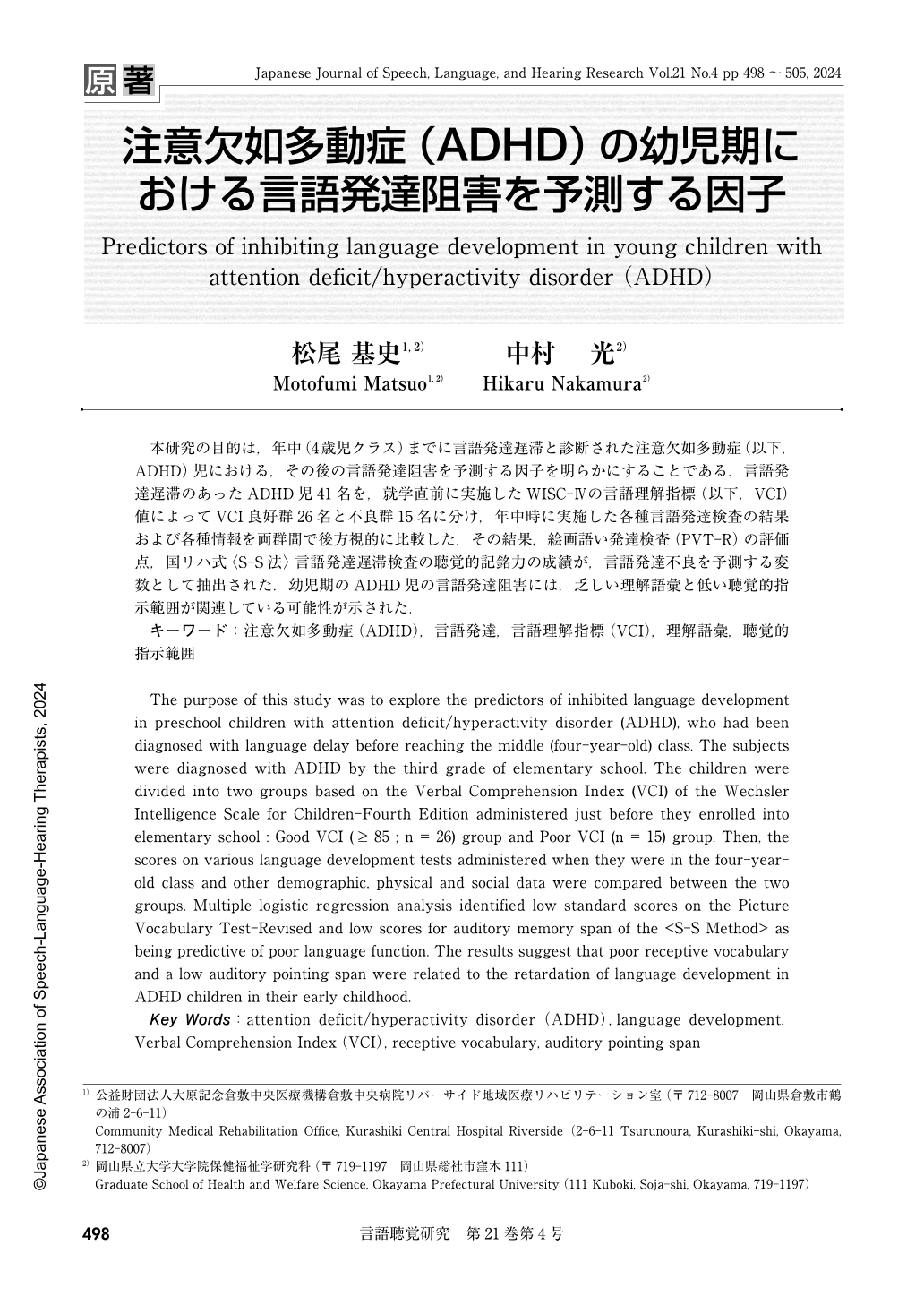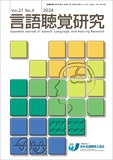Japanese
English
- 有料閲覧
- Abstract 文献概要
- 1ページ目 Look Inside
- 参考文献 Reference
本研究の目的は,年中(4歳児クラス)までに言語発達遅滞と診断された注意欠如多動症(以下,ADHD)児における,その後の言語発達阻害を予測する因子を明らかにすることである.言語発達遅滞のあったADHD児41名を,就学直前に実施したWISC-Ⅳの言語理解指標(以下,VCI)値によってVCI良好群26名と不良群15名に分け,年中時に実施した各種言語発達検査の結果および各種情報を両群間で後方視的に比較した.その結果,絵画語い発達検査(PVT-R)の評価点,国リハ式〈S-S法〉言語発達遅滞検査の聴覚的記銘力の成績が,言語発達不良を予測する変数として抽出された.幼児期のADHD児の言語発達阻害には,乏しい理解語彙と低い聴覚的指示範囲が関連している可能性が示された.
The purpose of this study was to explore the predictors of inhibited language development in preschool children with attention deficit/hyperactivity disorder (ADHD), who had been diagnosed with language delay before reaching the middle (four-year-old) class. The subjects were diagnosed with ADHD by the third grade of elementary school. The children were divided into two groups based on the Verbal Comprehension Index (VCI) of the Wechsler Intelligence Scale for Children-Fourth Edition administered just before they enrolled into elementary school:Good VCI (≥ 85 ; n = 26) group and Poor VCI (n = 15) group. Then, the scores on various language development tests administered when they were in the four-year-old class and other demographic, physical and social data were compared between the two groups. Multiple logistic regression analysis identified low standard scores on the Picture Vocabulary Test-Revised and low scores for auditory memory span of the <S-S Method> as being predictive of poor language function. The results suggest that poor receptive vocabulary and a low auditory pointing span were related to the retardation of language development in ADHD children in their early childhood.

Copyright © 2024, Japanese Association of Speech-Language-Hearing Therapists. All rights reserved.


